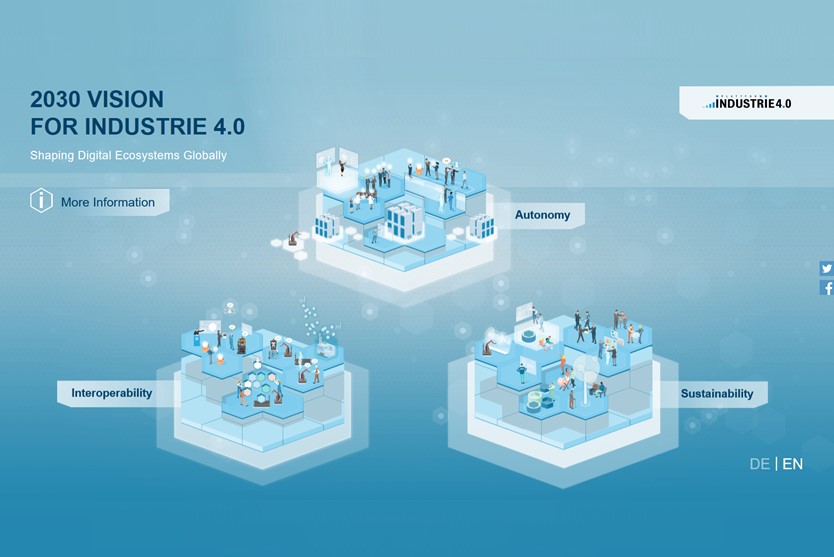
Martin Kamp, Head of the Plattform Industrie 4.0 working group “Work, Education and Training” and of the Berlin Office of IG Metall
© © Martin Kamp (Photographer: Dieter Düvelmeyer)
Question 1: For many decades, German industry has been shaped by the “social partnership”, i.e. the partnership between both sides of industry. Will the new forms of work render this partnership irrelevant or will it become even more important than in the past?
I believe that the social partnership is becoming more important. Having employers who provide recreational activities and free items at the company, like table football and soft drinks, is cool. But such things do not replace codified rights, i.e. rights to co-determination on the basis of works councils and collective bargaining agreements. The social partnership has helped ensure good working conditions and a high standard of living for employees and has contributed to the success of German industry.
This was reflected not least during the economic and financial crisis. The digital transformation in particular is the reason why participation rights are so important – as otherwise the processes of change are bound to fail. Co-determination means that people are given a say in matters that concern them. Whether it’s the upgrading of skills, agile work or cooperation with robots, these are areas where employers and employees must work together. What is more, digital and agile work can be and must be synonymous with good and healthy work. This is why the social partnership and occupational health and safety are not political relics of the past, but are in fact highly topical issues. This is all the more true when work can be undertaken at any time and in any place.
Question 2: Digitalisation often goes hand in hand with internationalisation. What impact does this trend have on the upgrading of professional skills?
Yes, it’s true that internationalisation is playing an increasingly important role in the field of labour and occupations. But IG Metall has made sure that it has adjusted the occupational profiles of all “major” occupations which it is responsible for so that these occupations are well prepared for the trend towards internationalisation. What is now needed is a great deal of effort to provide further training and support for training personnel so that the new training content can be taught well and quickly.
The Federal Government is currently making major efforts to provide funding for stays abroad as part of initial vocational training. Where such training makes sense, we naturally support it. Despite the fact that the ban on cooperation [between the Federal and Länder governments] has been relaxed, school policy in Germany lies within the remit of the Länder. The question here is whether this still matches current needs. The Bologna Process in the academic field and the German and European Qualifications Frameworks are instruments to ensure the comparability of training and qualifications, at least within the European Union. These schemes need to have a clear basis in law so that the German Qualifications Framework (DQR) can have a real effect. The Federal Government and the Länder have also enacted laws on the recognition of foreign professional qualifications. Enforcement of these laws, however, often remains a challenge. The Skilled Labour Immigration Act that has just been passed increases the pressure to implement a fast and practical recognition scheme. Together with the working group “Work, Training and Continuing Education”, I would like to take a look at international companies in the coming months to see how they deal with the qualifications of employees from different countries and on what basis they compare them.
Question 3: How do you keep your own knowledge and skills up-to-date? And what experiences and educational tips are you passing on to your children?
Some time ago, I wanted to register at the Institut Francais to take part in a placement test for a French course. I wrote a letter in German but I wanted to be polite, so I put it through Google Translate and mailed the French translation to the Institut. I received a swift answer saying that my email showed that my French language skills were excellent and that a test was no longer necessary. This made me realise how advanced tools like Google Translate and DeepL are now.
So, to answer your question, learning on the job and practical experience are what helps me keep my skills up to date. Of course, I also read a lot and attend seminars. But I learn most about what is changing in the world of work on my visits to companies where I talk to employees and works councils. I am also learning a lot from my 13 and 15-year-old children, for example that it often makes more sense to watch a YouTube tutorial instead of reading a technical book. On the other hand, I keep telling my children that it is not just technical knowledge that matters but that social skills and emotional intelligence are just as important. And I remind them that it is important to read a good fiction book from time to time.



